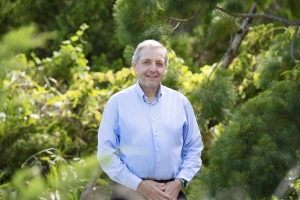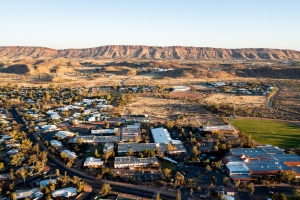Decarbonising the refining of spodumene to lithium hydroxide: Replacing fossil fuels with renewable energy in the calcination process
(Currently available)

Professor Bogdan Dlugogorski is a Distinguished Research Professor at CDU.
Professor Dlugogorski has four main research interests: developing and performance of fluorine-free firefighting foams, refining of spodumene to lithium chemicals, remediation of NOx formation in blasting of mining explosives, recycling of bromine, antimony and hydrocarbons from plastics laden with brominated flame retardants.
He has strong international connections and collaborations with chemists and researchers.
Professor Dlugogorski has supervised to completion more than 50 PhD candidates, with 14 of them now holding academic appointments in Australia and overseas, including the University of Melbourne, the University of Western Australia, Murdoch and the University of Science and Technology of China (ranked fifth in China).
Scholarship details
- Scholarship: $40,000 a year, for three years ($120,000). See the eligibility criteria and how to apply.
- Generous relocation allowances (flights, temporary accommodation on arrival)
- Location: Multiple locations including Darwin/Brisbane/Alice Springs/Sydney
- Start time: Between January 5 and March 31 in 2024
Project details
Over the last decade, China embarked on a bold program to revolutionise its car manufacturing industry, by introducing subsidies to drive the technical innovation in batteries used in electric powered vehicles.
This led to the price of lithium chemicals tripling between 2010 and 2018, as the production of these chemicals from brines in South America lacked agility owed to a two-year cycle required for the evaporation of the lithium concentration ponds. The void in the lithium supply was filled by miners from Western Australia, who noted a business opportunity to export concentrates of a hard-rock mineral, called spodumene (α-spodumene), for their conversion to lithium chemicals in Chinese refineries. However, the embodied emissions of CO2 from the supply chain of lithium chemicals, especially lithium hydroxide (LiOH·H2O) refined from spodumene, exceed those from brines, by about a factor of three.
The aim of the present project is to develop technologies to decarbonise the supply chain of lithium hydroxide refined from spodumene concentrates, including the concentrates to be produced shortly in NT by Core Lithium.
The project outcomes will de-risk Australian spodumene mining in NT and WA and will assist the young Australian lithium refining industry (such as the Tianqi Kwinana refinery in WA) to switch to renewable energy, sourced from the Northern Territory.
Developing cheap light weight advanced composites for fixed wing drones
(No longer available – student recruited)

1
Dr Milad Bazli research focuses on short-term and long-term structural performance of advanced and environmentally friendly materials, such as Fibre- Reinforced Polymers and Seawater Sea sand Concrete. Dr. Bazli finished his PhD in 2.4 years and received the prestigious Mollie Holman Medal Nominee award (Best PhD Thesis) from the Civil Engineering Department of Monash University.
Before Joining CDU, Dr. Bazli was a Postdoctoral Research fellow at The University Of Queensland, Postdoctoral Research Assistant at Monash University, and visiting research scholar at Tsinghua and Tongji universities.
Dr Bazli’s current research is in the use of recycled material in remote Northern Territory road construction.
Scholarship details
- Scholarship: $40,000 a year, for three years ($120,000). See the eligibility criteria and how to apply.
- Generous relocation allowances (flights, temporary accommodation on arrival)
- Location: Multiple locations including Darwin/Brisbane/Alice Springs/Sydney
- Start time: Between January 5 and March 31 in 2023
Project details
The scholarship recipient will develop and test the feasibility, efficiency, and sustainability of using light weight advanced Fibre Reinforced Composites (FRP) for the manufacture and remote site repair of fixed wing drones.
The main aims of the project are: (I) developing multi-functional (i.e. outstanding structural, environmental and economical properties) FRP systems optimised for strength/stiffness to weight ratio, and fibre to resin weight/volume fraction to be used in eVTOL drones; (II) Investigating the short and long-term response of the composite system under different loading and environmental conditions; (III) Implementing and prototype testing of eVTOL drones made from the developed composite system.
The results of the research will generate international publications, and the findingswill support advancements in the manufacture of remotely piloted aircraft to accelerate product quality and efficiency.

